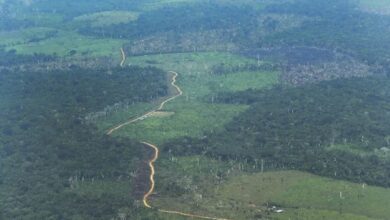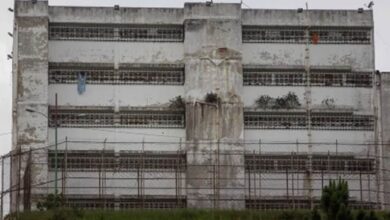A lie written on a bus: this is the real cost of Brexit
Listen this article
An advertising piece, used by supporters of Brexit, aimed to show how expensive it is to remain in the European Union, but leaving it has cost even more

The campaign that preceded the referendum that would decide whether the United Kingdom would continue to be a member of the European Union or not, was highlighted by misinformation.
Leer en español: Una mentira escrita en un bus: esto es el costo real del Brexit
Daniel Hannan, parliamentarian of the conservative party and known in various media as the 'Brexit sponsor', for example, said that the United Kingdom would never leave the European common market even in a Brexit scenario. "Only a madman would leave the common market," he said.
Now, the Prime Minister, Theresa May, has had to rectify and declare on several occasions that the process to leave the European Union necessarily contemplates leaving the European common market. The years of the so-called, Europe 'à la carte', where the aspiring States could choose which protocols of the European Union they wanted to assimilate and which they did not, are already in the past.
It was under this line of thought that the United Kingdom entered the process of European integration, and it was this that allowed it to keep the pound sterling, but now the European Union manages an all-or-nothing line. A State can have full membership, with all the commitments that this implies, or it can abstain from being a member. There are no gray areas anymore.
When March 29 arrives and the deadline for defining the terms of the exit is exhausted, the United Kingdom will be completely outside or completely within the organization.
Among many other conflicts, the one that exists between the will to leave the European Union and the desire to remain within the common market is perhaps the one that has hampered the search for an agreement that allows sealing the Brexit. Clumsiness and delay, in turn, have involved considerable costs, costs that far exceed the savings that the 'brexiters' believed they achieved.
The lie on the bus
Parliamentarian Boris Johnson, former mayor of London, a member of the conservative and notorious 'brexiter' party, traveled throughout the United Kingdom to campaign for the decision to leave the European Union. He moved on a huge red bus, with an equally huge inscription on the sides.
"We send 350 million pounds a week to the European Union, we finance the NHS (National Health Service) instead. Let's recover control " was read in white letters.
Although the inscription proposes a convincing argument, since 350 million extra pounds a week would make all the difference when it comes to developing public health in the United Kingdom, the figure is false.
According to the National Statistical Office of the United Kingdom, the weekly net contribution of the United Kingdom is around 199 million pounds.
However, the real figure is still convincing, because it is a quantity of money that would still completely change the financial landscape of the health system. The miscalculation and disinformation could even be worse if one takes into account the enormous costs involved in the process of leaving the European Union, which far exceed the supposed savings that the bus announced to the world.
The cost of Brexit
According to Gertjan Vlieghe, member of the monetary policy committee of the Bank of England, since the 2016 referendum, the United Kingdom has lost 2% of its GDP compared to a scenario in which substantial domestic economic phenomena had not occurred.
This, according to Vlieghe, quoted in The Guardian, would mean that the United Kingdom is not receiving approximately 40 billion pounds per year because of Brexit, which could be computed at 800 million pounds a week . More than twice the supposed savings that the campaign bus of Johnson and the 'brexiters' had.
"2% of GDP is not a superfluous figure, it's 40 billion pounds, or, if you prefer the same bus units, it's 800 million a week", Vlieghe said.
Read also: Brexit: the consequences of uncertainty
However, this figure is just the beginning, because it does not calculate what the United Kingdom has failed to gain on other fronts because of the extended parliamentary process that would lead to the Brexit.
On one hand, private investment in the United Kingdom has stagnated, it hasn't grown since the year of the referendum and in 2018 contracted by 3.7%. Compared to other G7 countries, among which are France, Canada, the United States, Japan, Germany, and Italy, the UK's economy showed the worst performance in this area.
"It is very unusual that the investment shrinks so much while the rest of the world is doing more or less well, until recently" complemented Vlieghe.
Another study, from the independent think tank Resolution Foundation, agrees with Vlieghe's diagnosis. "The United Kingdom has gone from being one of the fastest growing economies in the G7 before the referendum, to being one of the slowest".
What is worse, frequently, those who assume this cost are the citizens themselves. A study by the Center for Economic Performance and the London School of Economics estimated that the average consumer has paid an additional 404 pounds per year as a result of the referendum result. All due to the devaluation of the sterling pound, which has increased the prices of imported goods.
The European Union, by a decision of its Court of Justice, left the door open for the United Kingdom to retract its decision, but opting for this, brings other costs, of political nature, that Theresa May will have to weigh with those mentioned here.
LatinAmerican Post | Pedro Bernal
Translated from "Una mentira escrita en un bus: este es el costo real del Brexit"





